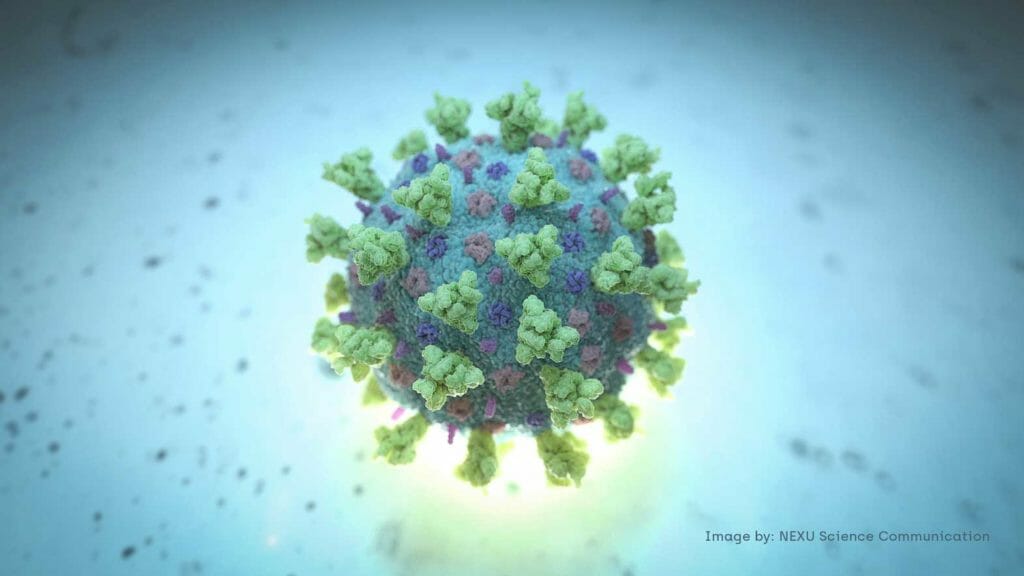Flu shots may aid Covid patients who need surgery

A computer image created by Nexu Science Communication together with Trinity College in Dublin, shows a model structurally representative of a betacoronavirus which is the type of virus linked to COVID-19, better known as the coronavirus linked to the Wuhan outbreak, shared with Reuters on February 18, 2020. NEXU Science Communication/via REUTERS
The following is a summary of some recent studies on COVID-19. They include research that warrants further study to corroborate the findings and that have yet to be certified by peer review.
Flu-vaccinated COVID-19 patients have easier surgeries
COVID-19 patients who require surgery appear to face fewer complications if they have previously been vaccinated against the flu, new data suggest. In a preliminary study that has not yet undergone peer review, researchers analyzed outcomes after various types of surgery on nearly 44,000 COVID-19 patients worldwide, half of whom had received a flu vaccine in the previous six months. In a presentation on Saturday at the annual meeting of the American College of Surgeons, they reported that flu-vaccinated patients had significantly fewer serious blood infections, fewer potentially life-threatening blood clots in their veins, fewer serious wound-healing problems, and fewer heart attacks. The flu vaccine was also linked with lower rates of stroke, pneumonia and death. The study cannot prove that flu vaccines were protective, and “the flu shot is by no means a substitute for COVID-19 vaccination,” said study leader Susan Taghioff of the University of Miami Miller School of Medicine in Florida. “We strongly recommend that everyone get both their flu and COVID-19 vaccines this year in accordance with current guidelines.”
COVID-19 virus spread largely undetected in early 2020
The virus that causes COVID-19 was circulating undetected in the United States and Europe as early as January 2020 and was becoming widespread well before broad testing was implemented, a new computer model suggests. By March 2020, for every SARS-CoV-2 infection diagnosed in the United States, another 97 to 99 infections went undetected, according to a report published in Nature on Monday. “Transmission is likely to have begun by late January in California and early February in New York state, but possibly up to two weeks earlier in Italy,” said coauthor Alessandro Vespignani of Northeastern University in Boston. A shortage of tests, plus narrow criteria for testing, helped the virus to spread undetected, he said. “If testing had been more widespread and not restricted to having a travel history from China, there would have been opportunity for earlier detection and intervention,” Vespignani said.

